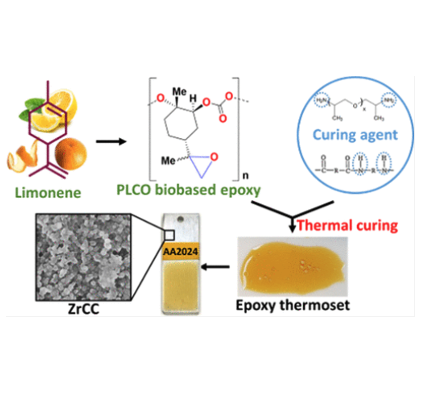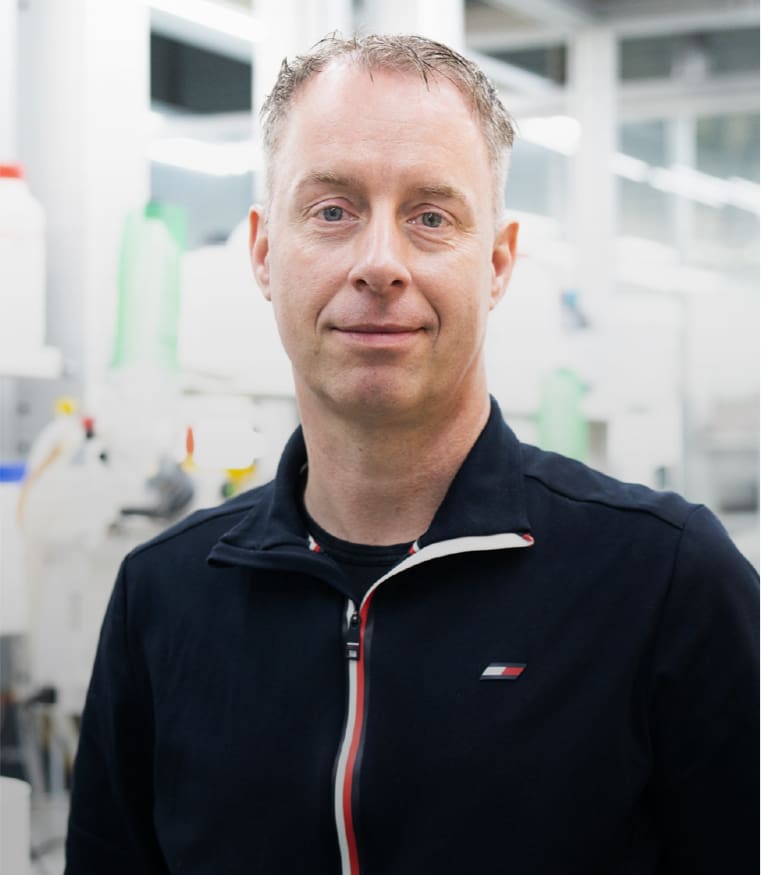Novel Biobased Epoxy Thermosets and Coatings from Poly(limonene carbonate) Oxide and Synthetic Hardeners
In the area of coating development, it is extremely difficult to find a substitute for bisphenol A diglycidyl ether (DGEBA), the classical petroleum-based raw material used for the formulation of epoxy thermosets. This epoxy resin offers fast curing reaction with several hardeners and the best thermal and chemical resistance properties for applications in coatings and adhesive technologies. In this work, a new biobased epoxy, derived from poly(limonene carbonate) oxide (PLCO), was combined with polyetheramine and polyamineamide curing agents, offering a spectrum of thermal and mechanical properties, superior to DGEBA-based thermosets. The best formulation was found to be a combination of PLCO and a commercial curing agent (Jeffamine) in a stoichiometric 1:1 ratio. Although PLCO is a solid due to its high molecular weight, it was possible to create a two-component partially biobased epoxy paint without the need of volatile organic compounds (i.e., solvent-free formulation), intended for use in coating technology to partially replace DGEBA-based thermosets.

Bonamigo Moreira, V.; Rintjema, J.; Bravo, F.; Kleij, A: W.; Franco, L.; Puiggalí, J.; Alemán, Armelin, E.
ACS Sustainable Chem. Eng. 2022
DOI:
10.1021/acssuschemeng.1c07665

Let's create a brighter future
Join our team to work with renowned researchers, tackle groundbreaking
projects and contribute to meaningful scientific advancements




















